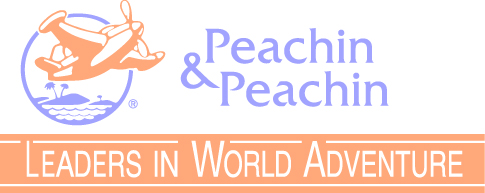By Mary L. Peachin
Sunday, March 12, 2000
Deep in the Valley, on the road between Mammoth Hot Springs and Cooke City, Mont., bison graze along the banks of the Lamar River. When wolves were reintroduced to Yellowstone National Park, this area became home to some of the 10 packs, and whenever one of the packs kills an elk, news spreads up and down the valley, usually beginning and ending at the Buffalo Ranch.
The ranch is the campus for the field school of the Yellowstone Institute, which offers more than 125 courses throughout the year. This campus doesn boast a stadium or research library; its classroom is all of Yellowstone National Park.
There is, however, a feel of (rudimentary) dorm room about the place. For $18 per night per person, participants share space in rustic log cabins containing three cots, a propane heater and a reading light. Each student must bring a pillow and a warm sleeping bag.
There are nearby outhouses, and heated bathrooms with showers are available in the classroom building,which is also called the “historic bunkhouse.” In addition to a classroom, it contains a communal, self-service kitchen. Students arrive with their own food, claiming space in one of several refrigerators.
The focus here, needless to say, is not on the accommodations. Folks come to learn, to immerse themselves in the park under the guidance of expert instructors. For those who appreciate the magnificence and diversity of Yellowstone, its hard not to find a course that will fascinate and intrigue.
One of the most popular classes at the institute is the springtime course on the parks bears. Late spring is one of the best times to view grizzlies — thats when the bears emerge from hibernation, ravenous hunger leading them to the remains of those animals that didn survive the winter. Besides viewing the bears, students track their signs on the park trails and learn about bear behavior, the species long-term survival prospects and how to respond during a surprise encounter.
But bears aren all; the institute offers similar field-study classes on wolves, smaller mammals, birds, butterflies, insects and plants. Other courses trace park history — hotels, ghost stories, geysers (including Old Faithful), or the glaciations and volcanic eruptions of the past two million years that created Yellowstones magnificent scenery. There are even more sedentary courses in painting, photography — even back-country cooking.
And like any good school, the Yellowstone Institute offers field trips — students can “study” fishing, llama hiking, horsepacking, canoeing or kayaking, enjoying each activity while learning how to improve their expertise. Not only are the instructors experts, but you can count on visiting the parks best rivers or trails.
Although “graduates” receive no diploma, they can visit the institute store for shirts and caps featuring the logo of their new alma mater. Many students, however, refuse to graduate — returning again and again for one more way to experience Yellowstone.
IF YOU GO
The Details
The Yellowstone Institute is operated by the Yellowstone Association, an organization that, in partnership with the National Park Service, promotes understanding and appreciation of Yellowstone National Park. Its not necessary to be an association member to sign up for classes, but association members get the first crack at class enrollment and receive a slight discount on class costs. Annual membership fees begin at $30. For details on classes, contact the association at www.yellowstoneassociation.org or 307-344-2294.
Tuition varies from a few hundred dollars for shorter classes to $1,385 for a five-day back-country horsepacking trip.
In addition to bringing your own bedding and food, it is important that students bring appropriate layered clothing for the diverse climate of the park. Class members receive an information packet after they register that suggests clothing and gear to bring. Participants in active courses should be physically capable and should inquire about the level of exertion required in a specific course.
